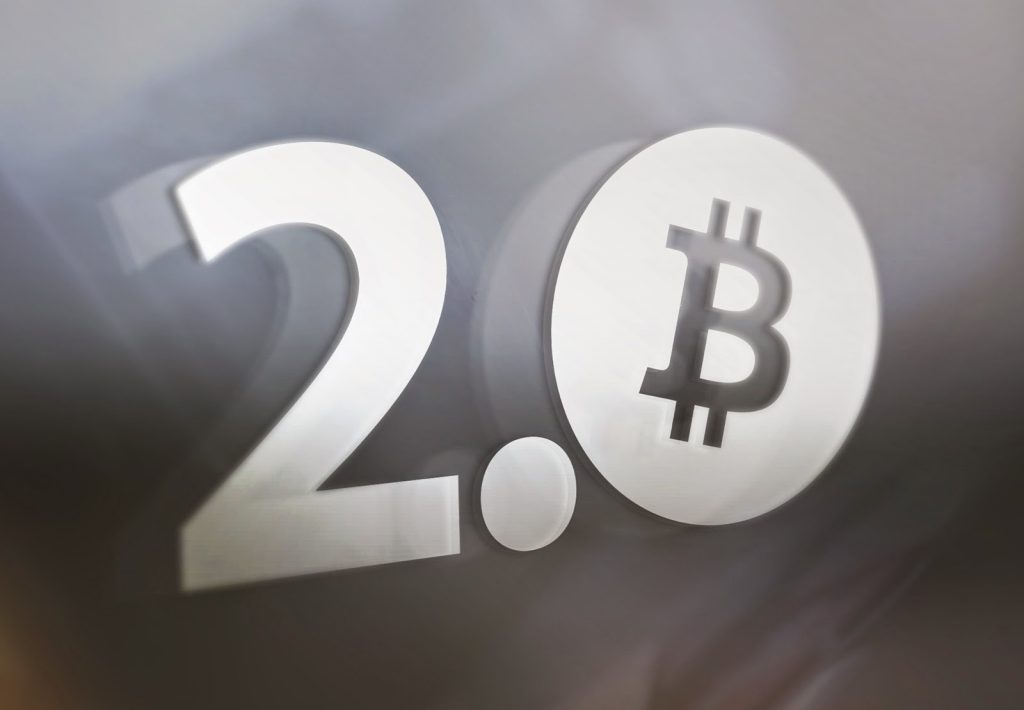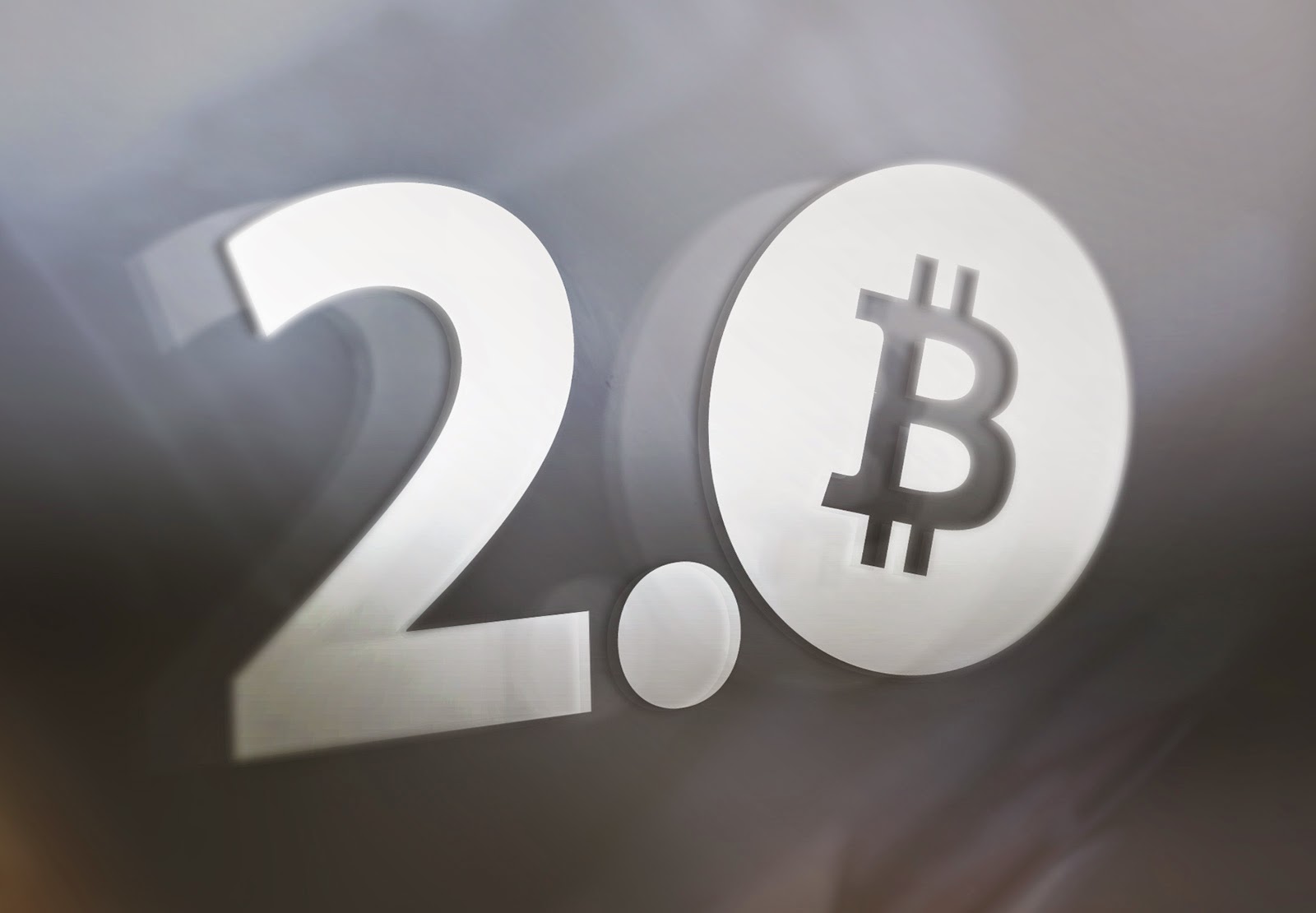
(
CoinDesk) Just when people were getting used to the idea that bitcoin might not be a boom-and-bust fad destined for failure, entirely new applications of the technology have joined digital currency on stage.
Crypto 2.0 – also know as cryptography 2.0, decentralized applications, or, popularly, as bitcoin 2.0 – is the application of block chain or distributed ledger technology to things other than digital currency. The block chain offers the ability to facilitate decentralized ownership and store, transfer and process information in a decentralized, programmable way. Many consider that innovation to be the true value of this technology.
In May, New York-based investment firm Ledra Capital took to Twitter to crowdsource a list of what kinds of information the block chain could be used for. Currency transactions, of course, topped the list. But, it was followed by things like stocks, bonds, mortgages, land titles, gun permits, contracts, votes, bets, trademarks, data storage, domain names, proof of authorship and much, much more.
“Bitcoin can be used to pay for things like a cup of coffee, but that’s not bitcoin’s ‘killer app’. To the average customer it’s just as easy to pay with their credit card. A killer app would need to offer massive advantages in another area.”
A community of developers and entrepreneurs recognize this notion and have been busy building out many crypto 2.0 concepts. Dominik Zynis, the former head of business development at
Mastercoin, commented on the significance of this movement to CoinDesk, saying:
“We ought to be paying very close attention to crypto 2.0 because bitcoin has redefined how we launch web services.”
Zynis believes crypto 2.0 companies are laying the foundation for a new generation of “secure and scalable Internet applications” that will be more resilient to hacking, fraud, scalability and privacy problems.
Bitcoin’s role as a digital currency is still a work in progress, both at the code and implementation level, as well as on the consumer and institutional adoption side. Still, the wider impact of distributed ledger technology is beginning to rapidly take shape.
Vitalik Buterin, co-founder of
Ethereum, illustrated the movement’s broader vision to CoinDesk, adding:
“I think now might be the time when we have just enough cryptographic, crypto-economic building blocks to finally make a proper shot at advancing a radically different vision for Internet architecture and society.”
Rise of the decentralized exchange
A year ago it might have been hard to believe that in just 12 month’s time, a publicly traded company would be openly exploring the possibility of launching a cryptosecurity on a decentralized asset exchange.
Overstock.com CEO Patrick Byrne has been outspoken in his support of digital currency, and he recently
told CoinDesk that Overstock intends to figure out how to launch a cryptosecurity so other companies can use their system to raise funds.
Overstock published a wiki on 29th July that currently details 12 organizations that have either launched decentralized exchanges or are building them.
Among them, Counterparty,
NXT and
BitShares have exchanges that are operational right now. Counterparty has been live since January and NXT’s Asset Exchange since May, while BitShares’s platform is only a few weeks old. Each exchange’s implementation differs in various ways, but they all share common features, namely the ability to create and trade user-defined assets without the need for a centralized third party.
Company shares are an obvious application of these platforms. On NXT’s Asset Exchange, for instance, where more than 220 user-defined assets have already been created, digital currency exchange service Coinomat has issued a cryptoasset that offers shareholders a 1.5% dividend of the company’s weekly profits. This is really an example of a smart contract that is automatically confirmed and processed over a block chain.
Other current examples of block chain implementations include the Digital Tangible Trust, which offers a tradable gold-backed cryptoasset. Non-traditional assets are also emerging, like those being created by MyPowers, whose digital tokens allow people to buy and trade brand equity in artists and organizations. Other projects are moving beyond assets, like Pavilion, which is planning to utilize block chain technology to sign and publicly publish contracts.
Future goals for cryptoassets include smart property linked to physical assets; imagine a rental car whose key was tradable as a token on a decentralized exchange and downloadable to a fob that would unlock the vehicle. There are also plans to launch what are called decentralized autonomous companies (DACs) – namely by projects like BitShares – which operate autonomously on top of a block chain and earn profit for shareholders.
Decentralized applications will hide the block chain
Beyond assets, there have been efforts to utilize the block chain as a way to store data.
Namecoin, an attempt to create a decentralized domain name registry outside the control of
ICANN, was arguably the second implementation of block chain technology after digital cash transactions. More recently, efforts like
MaidSafe and
Storj have completed fundraising rounds.
MaidSafe is attempting to use the bitcoin block chain to create a fully decentralized internet by sharing processing and memory power across a distributed network. Its
April crypto-crowdsale notably raised $7m in five hours, although, due to the poor liquidity of the Mastercoin it received, it soon revised that number to $5.5m.
Storj completed its crypto-crowdsale on 20th August, raising
910 BTC. The Storj platform offers online storage similar to Dropbox or Google Drive, but does so over a distributed network. Utilizing the bitcoin block chain, Storj allows users to buy available disk space on the network, and in addition, allows users with free storage space to sell it to those in need.
Shawn Wilkinson, founder of Storj and a
bitcoin developer, noted the value of expanded applications of the block chain, saying:
“Essentially you can take the technology from bitcoin, which is a $5bn–$6bn industry, and apply it to an existing area like cloud storage, which is a $150bn dollar industry.”
With applications like Storj, Wilkinson pointed out, you move past things like regulation, public perception, price volatility and the complexity of the underlying technology. Decentralized applications provide a user interface whose back-end could be a traditional network but happens to be a distributed one.
Sidechains, treechains and a question of blockchains
One important point of contention within the crytpo 2.0 space is what block chain this next generation of implementations should be built on top of. In one camp are the organizations like Ethereum and BitShares that are building their own, entirely new block chains on top of which their platforms will operate.
In June, bitcoin core developer Gavin Andresen addressed the Ethereum project in
a blog post and suggested that Ethereum’s intentions to create a new proof of work system and currency seemed extraneous at first blush.
He wrote:
“Bitcoin already provides a global currency and distributed ledger – there is no need to reinvent those wheels. Combining real-world information with bitcoin is where things start to get really interesting.”
Alternatively, BitShares uses a mechanism called delegated proof-of-stake (DPOS), where stakeholders delegate their voting power to 101 delegates that take turns updating BitShares block chain. Distributed proof-of- helps prevent known risks of proof-of-work, including risk of a 51% attack.
Other crypto 2.0 initiative are seeking to adapt the bitcoin block chain to scale more effectively, be less decentralized and allow for permissionless development. One such effort is through bitcoin core developer
Peter Todd’s treechain concept, which Todd is developing while working at crypto 2.0 start-up
Viacoin. Side chains are another potential implementation that will allow new features to be added to the existing bitcoin block chain through new block chains that interact with it.
Open your free digital wallet here to store your cryptocurrencies in a safe place.

 (CoinDesk) Just when people were getting used to the idea that bitcoin might not be a boom-and-bust fad destined for failure, entirely new applications of the technology have joined digital currency on stage.
(CoinDesk) Just when people were getting used to the idea that bitcoin might not be a boom-and-bust fad destined for failure, entirely new applications of the technology have joined digital currency on stage.